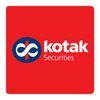Equity Dealer
70+ Equity Dealer Interview Questions and Answers

Asked in SBI Securities

Q. How can we generate 15,000k brokerage from clients if our brokerage is .50?
To generate 15000k brokerage from clients with .50 brokerage, we need to have a total trading volume of 3 billion.
Brokerage = Total Trading Volume * Brokerage Rate
15000k = Total Trading Volume * 0.50
Total Trading Volume = 15000k / 0.50
Total Trading Volume = 3 billion

Asked in SBI Securities

Q. Explain the concepts of In the money, At the money, and Out of the money call and put options with examples.
In the money, At the money and out of the money call and put option explained with examples.
In the money call option: Strike price is lower than the current market price. Example: Stock ABC is trading at $50, call option with a strike price of $40 is in the money.
Out of the money call option: Strike price is higher than the current market price. Example: Stock ABC is trading at $50, call option with a strike price of $60 is out of the money.
At the money call option: Strike pr...read more
Equity Dealer Interview Questions and Answers for Freshers

Asked in Geojit Financial Services

Q. Which stock do you suggest for investment in the current scenario?
I suggest investing in XYZ stock due to its strong financials and growth potential.
XYZ has consistently shown strong financial performance in the past few quarters
The company has a solid growth strategy in place and is expanding into new markets
Industry experts predict a positive outlook for the sector in which XYZ operates
XYZ has a competitive advantage over its peers due to its unique product offerings
The stock is currently undervalued and has the potential for significant ...read more

Asked in Motilal Oswal Financial Services

Q. What do you know about markets?
Markets refer to the buying and selling of goods and services, stocks, bonds, and other financial instruments.
Markets can be classified into different types such as stock markets, commodity markets, currency markets, etc.
The prices of goods and services in a market are determined by the forces of supply and demand.
Investors use various tools and techniques to analyze market trends and make informed investment decisions.
Market volatility and economic indicators such as GDP, in...read more
Asked in Mse Financial Services

Q. Are you flexible to handle both commodity and equity dealing?
Yes, I am flexible to do commodity segment dealing and equity dealing.
I have experience in both commodity and equity dealing
I am willing to learn and adapt to new market trends
I understand the differences between the two segments and can handle them accordingly

Asked in Kotak Securities

Q. Which are the stocks I belive to perform in comming 5 days
It is not possible to accurately predict the performance of specific stocks in the next 5 days due to market volatility and various external factors.
Stock market performance is influenced by a wide range of factors including economic indicators, company news, geopolitical events, and investor sentiment.
Short-term stock predictions are highly speculative and can be influenced by unpredictable events.
It is recommended to focus on long-term investment strategies and diversificat...read more
Equity Dealer Jobs




Asked in Geojit Financial Services

Q. What sectors are traded in the stock market?
Sectors traded in the stock market include technology, healthcare, finance, energy, consumer goods, and more.
Technology
Healthcare
Finance
Energy
Consumer Goods
Utilities
Real Estate
Materials
Industrials

Asked in SBI Securities

Q. Do you know how SBI Securities works?
Yes, SBI Securities is a subsidiary of State Bank of India offering a range of financial services including equity trading.
SBI Securities is a subsidiary of State Bank of India
It offers services like equity trading, mutual funds, IPOs, etc.
The company has a strong presence in the Indian financial market
Share interview questions and help millions of jobseekers 🌟


Asked in IIFL Finance

Q. How would you tackle a market downfall and manage your market sentiment during trading?
I would diversify my portfolio and keep a close eye on market trends and news.
Diversify portfolio to minimize risk
Stay updated on market trends and news
Use stop-loss orders to limit losses
Avoid emotional trading decisions
Consider short selling or hedging strategies
Maintain a long-term perspective
Consult with experienced traders or financial advisors

Asked in Motilal Oswal Financial Services

Q. Do you have any experience trading stocks?
Yes, I have a good understanding of trading stocks.
I have studied the stock market and its trends
I keep myself updated with the latest news and events that can affect the stock market
I have experience in analyzing financial statements and making informed decisions
I have also practiced trading stocks in a simulated environment
For example, I have successfully traded stocks of companies like Apple, Amazon, and Microsoft

Asked in Motilal Oswal Financial Services

Q. Can you open 3 accounts monthly?
Yes, I can open 3 accounts monthly.
Yes, I have the capacity to open 3 accounts monthly.
I have experience in opening multiple accounts in a month.
I can manage the workload efficiently to open 3 accounts monthly.
For example, in my previous job, I used to open 5 accounts monthly on average.

Asked in Geojit Financial Services

Q. What technical charts are used to predict market movement?
Technical charts used for predicting market movement include candlestick charts, moving averages, and relative strength index (RSI).
Candlestick charts show the open, high, low, and close prices for a given time period
Moving averages smooth out price fluctuations and show the trend direction
RSI measures the strength of a security's price action
Other technical charts include Bollinger Bands, MACD, and Fibonacci retracements
Asked in Mse Financial Services

Q. What is the lot size of equity and commodity futures?
Lot size varies for different equity and commodity futures contracts.
Lot size refers to the minimum quantity of shares or units that can be traded in a single transaction.
For example, the lot size for Nifty 50 futures is 75, while for Bank Nifty futures it is 20.
Similarly, the lot size for gold futures is 1 kg, while for crude oil futures it is 100 barrels.
Lot size can also vary based on the exchange and the contract expiry date.
Asked in Mse Financial Services

Q. What is the timing of the equity and commodity segment?
Equity and commodity segments have different timings for trading.
Equity segment trading timing is from 9:15 am to 3:30 pm on weekdays.
Commodity segment trading timing varies for different commodities.
For example, gold and silver trading timing is from 9:00 am to 11:30 pm on weekdays.
Crude oil trading timing is from 10:00 am to 11:30 pm on weekdays.
Timing may also vary based on exchange and market regulations.
Asked in Bp Equities

Q. How would you approach a client who is not interested in making an investment?
Engage the client by understanding their concerns and demonstrating the value of investment tailored to their needs.
Listen actively to understand their reasons for disinterest, e.g., fear of loss or lack of knowledge.
Educate them on the benefits of investing, such as potential for wealth growth and financial security.
Share success stories of clients who were initially hesitant but benefited from investing.
Offer a low-risk investment option to ease their concerns, such as a sa...read more

Asked in Swastika Investmart

Q. What is financial services What is financial swap What is index
Financial services refer to services provided by financial institutions to help manage money and investments. A financial swap is a financial contract between two parties to exchange cash flows based on a predetermined set of rules. An index is a statistical measure of the performance of a group of stocks or other securities.
Financial services include banking, investment management, insurance, and other related services
A financial swap is a type of derivative contract that al...read more
Asked in reliancesmartmoney.com

Q. How would you generate revenue if you were selected for this role?
Revenue is generated through brokerage fees and commissions on trades executed for clients.
Brokerage fees charged on every trade executed for clients
Commissions earned on the volume of trades executed
Additional revenue generated through value-added services like research and advisory
Revenue can also be generated through cross-selling of other financial products
Building a strong client base through networking and referrals

Asked in Geojit Financial Services

Q. How would you recommend a good stock to your client?
I will recommend a good stock to my client by conducting thorough research, analyzing market trends, and considering the client's investment goals and risk tolerance.
Conduct thorough research on the company's financial health, performance, and future prospects
Analyze market trends and economic indicators to identify potential opportunities
Consider the client's investment goals, risk tolerance, and time horizon before making a recommendation
Provide regular updates and recommen...read more

Asked in Motilal Oswal Financial Services

Q. You will have a fixed package of 2.25 LPA. Are you okay with it?
I am open to discussing the compensation package further based on my qualifications and experience.
I am open to negotiating the compensation package based on my skills and experience.
I would like to understand the complete benefits package before making a decision.
I am willing to consider the fixed package but would like to discuss potential for performance-based incentives.
Asked in Mse Financial Services

Q. What is a derivatives contract?
A derivatives contract is a financial agreement between two parties based on an underlying asset.
Derivatives contracts derive their value from an underlying asset such as stocks, bonds, commodities, or currencies.
They are used for speculation, hedging, or arbitrage purposes.
Common types of derivatives contracts include futures, options, swaps, and forwards.
These contracts allow investors to take positions on the price movements of the underlying asset without owning it.
For ex...read more

Asked in Motilal Oswal Financial Services

Q. What are your thoughts on cross-selling?
Cross selling is an important aspect of equity dealing where a dealer offers additional products or services to existing clients.
Cross selling helps in increasing revenue and building customer loyalty.
It involves identifying the needs of the client and offering relevant products or services.
For example, a dealer can offer mutual funds or insurance policies to clients who have invested in stocks.
Effective cross selling requires good communication and relationship building skil...read more

Asked in SMC Global Securities

Q. How quickly can you place client orders?
I can place client's orders punching quickly and accurately to ensure timely execution.
I am proficient in using trading platforms to quickly enter orders.
I have a strong attention to detail to avoid errors in order entry.
I prioritize speed and accuracy to meet client's needs efficiently.
Asked in Mse Financial Services

Q. What is call option and put option
Call option and put option are types of financial contracts that give the buyer the right, but not the obligation, to buy or sell an underlying asset at a predetermined price within a specified time period.
Call option gives the buyer the right to buy an underlying asset at a predetermined price within a specified time period.
Put option gives the buyer the right to sell an underlying asset at a predetermined price within a specified time period.
Both call and put options have a...read more

Asked in SMC Global Securities

Q. Are you familiar with the stock market?
Yes, I am familiar with the stock market.
I have been following the stock market for a few years now.
I have experience in buying and selling stocks.
I keep myself updated with the latest news and trends in the stock market.
I have a good understanding of technical and fundamental analysis.
I have also taken courses and read books on the stock market.
For example, I have invested in stocks like Apple, Amazon, and Tesla.

Asked in Motilal Oswal Financial Services

Q. What is your outlook on the current market?
I feel cautiously optimistic about the current market.
I believe the market is showing signs of stability and growth.
There are several positive indicators such as increasing stock prices and low volatility.
However, I am also aware of potential risks and uncertainties that could impact the market.
I closely monitor economic and political developments to make informed investment decisions.
For example, the recent trade tensions between countries have the potential to affect market...read more

Asked in Sharekhan

Q. What do you know about the stock market?
Shares market is a platform where stocks of publicly traded companies are bought and sold.
Shares represent ownership in a company
Shares can be bought and sold on stock exchanges
Prices of shares fluctuate based on supply and demand
Investors can make profits by buying low and selling high
Examples of stock exchanges include NYSE, NASDAQ, and BSE
Asked in Mse Financial Services

Q. Do you have a NISM series certificate?
Yes, I have completed the NISM series certification.
I have completed the NISM series certification which includes various modules related to equity trading and investment.
This certification is recognized by SEBI and is mandatory for individuals working in the securities market.
It demonstrates my knowledge and understanding of the equity market and my ability to provide quality services to clients.
I have also kept myself updated with the latest market trends and regulations th...read more

Asked in Geojit Financial Services

Q. Tell me about futures derivatives.
Futures derivatives are financial contracts that obligate the buyer to purchase an asset or the seller to sell an asset at a predetermined future date and price.
Futures contracts are standardized and traded on exchanges.
They are used for hedging or speculation.
Examples include stock futures, commodity futures, and currency futures.
Futures contracts have margin requirements and daily settlement.
They have expiration dates and can be rolled over or settled.
Futures prices are inf...read more

Asked in Tradebulls

Q. How much brokerage revenue did you generate per day?
I used to generate an average of $X in brokerage per day
On average, I used to generate $X in brokerage per day
The amount of brokerage generated per day varied based on market conditions and client activity
For example, on a busy trading day, I could generate $Y in brokerage, while on a slow day it could be lower at $Z

Asked in Kotak Securities

Q. What are the current repo and reverse repo rates?
Repo rate is the rate at which the central bank lends money to commercial banks, while reverse repo rate is the rate at which the central bank borrows money from commercial banks.
Repo rate is currently at 4.00% in India as of September 2021.
Reverse repo rate is currently at 3.35% in India as of September 2021.
Repo rate is used by the central bank to control inflation and stimulate economic growth.
Reverse repo rate is used to absorb excess liquidity in the banking system.
Interview Questions of Similar Designations
Interview Experiences of Popular Companies








Reviews
Interviews
Salaries
Users

















